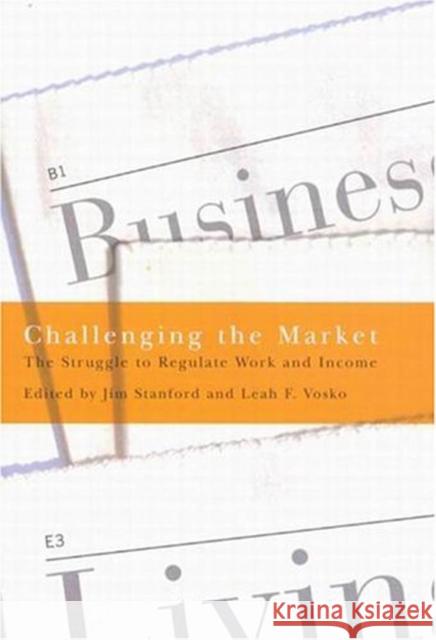Challenging the Market: The Struggle to Regulate Work and Income » książka
Challenging the Market: The Struggle to Regulate Work and Income
ISBN-13: 9780773527263 / Angielski / Twarda / 2004 / 400 str.
Challenging the Market: The Struggle to Regulate Work and Income
ISBN-13: 9780773527263 / Angielski / Twarda / 2004 / 400 str.
(netto: 464,55 VAT: 5%)
Najniższa cena z 30 dni: 483,79
ok. 22 dni roboczych.
Darmowa dostawa!
For two decades economic and social policy in most of the world has been guided by the notion that economies function best when they are fully exposed to competitive market forces. In labour market policy, this approach is reflected in the widespread emphasis on flexibility - a euphemism for the retrenchment of income support and social security, the relaxation of labour market regulations, and the enhanced power of private actors to determine the terms of the employment relationship. These strategies have had marked effects on labour market outcomes, leading to greater vulnerability and polarization - and not always in ways that enhance worker-centred flexibility. The authors offer a more balanced analysis of the functioning and effects of labour market regulation and deregulation. By questioning the underpinnings of the flexibility paradigm, and revealing its often damaging impacts (on different countries, sectors, and constituencies), they challenge the conclusion that unregulated market forces produce optimal labour market outcomes. The authors conclude with several suggestions for how labour policy could be reformulated to promote both efficiency and equity.











